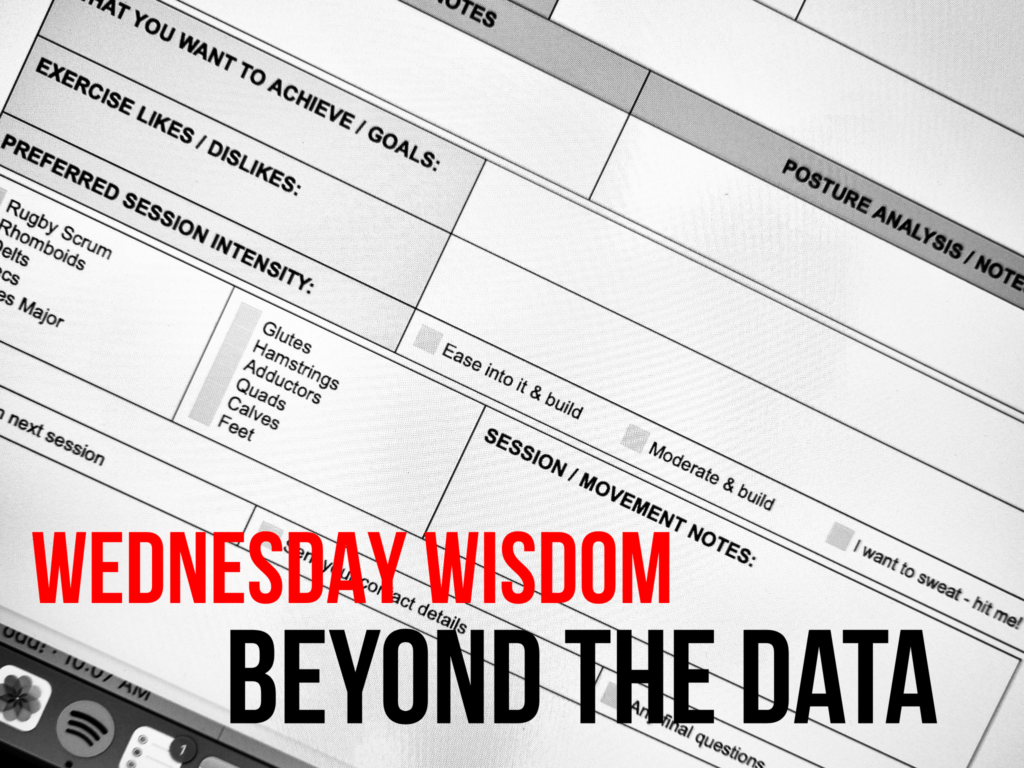As coaches we are always striving to give our clients what they NEED in a program, from the muscle releases and mobility work they need to improve their movement, to the training style and exercises best suited to them to help them make positive progress.
We’ve talked a lot about…
Movement screens & assessments – what we need to cover from a physical point of view in initial sessions when we first begin working with a new client….
How to communicate clearly and positively with clients both in assessments and in sessions…
But something else essential to consider when you begin working with clients is not only what they NEED, but also on what they WANT. And I’m not talking about what their goals are – the macro factors (because hopefully we already have that in mind)- I’m talking about the micro factors…
In an initial assessment these questions are ALWAYS included when I’m beginning to work with a new client:
What training or exercise have you done in the past and how did you find it?
The key part of this question is in asking HOW they found it. Did they enjoy it? Did they get results? Did they have a negative experience?
If someone had a negative experience or didn’t get results from a certain type of training, it’s essential we consider that and take a different approach or ensure we re-frame that style of exercise to remove that negative bias, right? Or if they had great results in the past it’s likely they’ll have a positive bias toward that style of training, so it’s important we try to make them feel like we’re starting them off in a way that aligns with that.
Are there any exercises that you:
Really like, or really want to learn or improve?
This is a helpful question both because it gives us guidance for when we create a program, but also because it can help us set training goals for clients who have the ‘general health’ or ‘fat loss and toning’ goals but no specific exercise goals – it helps us set smaller targets and celebrate milestones in their training.
Really dislike?
*This is usually where people say ‘burpees’ *
It’s not to say we should avoid giving people things they dislike, because the things they dislike can be the things they struggle with and need to improve on! But this is where someone might tell you jumping makes them feel self-conscious or that they’re scared of kettlebells, so it’s important data to gather. Maybe it means you couple an exercise they really like with one they dislike so it balances out, or maybe you find an alternative to that high impact jumping option you would have otherwise put into the program.
How do you want to approach exercise starting out with us- there are 3 boxes we can tick…
Far Left of the scale = Start slowly and build intensity.
Middle of the scale = Moderate intensity
Far Right of the scale = Hit me! I want to smash it!
This question is KEY in discovering what they are expecting and their headspace around training…
If someone very nervous and new to exercise wanting to start slow is hit with a high intensity session it could be a very negative experience and put them off. On the other end of the scale if someone used to training hard comes in expecting to be smashed then they are going to be disappointed in a program that doesn’t challenge them as much as they expected.
It’s quite common for some one to select the right box, ‘Hit me!’, when they’re not physically ready to jump right into a high intensity/difficult program – mentally that’s what they want, but physically that is not what is best for them! In these cases it’s important for you to program what their body needs and explain in advance that their program may be a little lower intensity to begin with due to reason X, Y, Z. But always try and incorporate an element that makes them still feel that level of challenge in a safe way so they’re getting what they need on a mental level too..
For example, someone who has come from a high intensity large group training background with niggling injuries and a lot of mobility restrictions will likely want to join you and hit it hard! But by explaining that you’d like to have a strong mobility focus for the first 3 weeks to eliminate those niggling pains and accelerate their mobility so that they can then boost the intensity, get more out of every session and move pain-free… They are likely to open to the lower intensity start because they know the plan and see the bigger picture!
The information you gather from these questions and other questions of a similar nature are just as valuable as the physical assessment and mobility screening data you gather, because they ensure you are able to work with your client to create a program that balances their WANTS with their NEEDS, so they are happy and enjoying the process as they make positive progress forward.
What are your favourite questions to ask when going ‘beyond the data’ when working with new clients?
For for Newsletter

